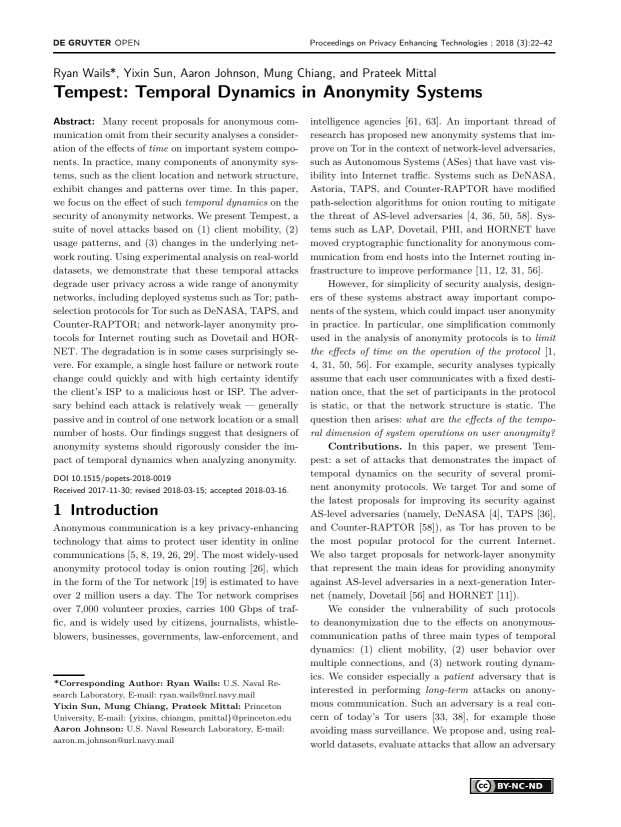Tempest: Temporal Dynamics in Anonymity Systems
Authors: Ryan Wails (U.S. Naval Research Laboratory), Yixin Sun (Princeton University), Aaron Johnson (U.S. Naval Research Laboratory), Mung Chiang (Princeton University), Prateek Mittal (Princeton University)
Volume: 2018
Issue: 3
Pages: 22–42
DOI: https://doi.org/10.1515/popets-2018-0019
Abstract: Many recent proposals for anonymous communication omit from their security analyses a consideration of the effects of time on important system components. In practice, many components of anonymity systems, such as the client location and network structure, exhibit changes and patterns over time. In this paper, we focus on the effect of such temporal dynamics on the security of anonymity networks. We present Tempest, a suite of novel attacks based on (1) client mobility, (2) usage patterns, and (3) changes in the underlying network routing. Using experimental analysis on real-world datasets, we demonstrate that these temporal attacks degrade user privacy across a wide range of anonymity networks, including deployed systems such as Tor; pathselection protocols for Tor such as DeNASA, TAPS, and Counter-RAPTOR; and network-layer anonymity protocols for Internet routing such as Dovetail and HORNET. The degradation is in some cases surprisingly severe. For example, a single host failure or network route change could quickly and with high certainty identify the client’s ISP to a malicious host or ISP. The adversary behind each attack is relatively weak — generally passive and in control of one network location or a small number of hosts. Our findings suggest that designers of anonymity systems should rigorously consider the impact of temporal dynamics when analyzing anonymity.
Copyright in PoPETs articles are held by their authors. This article is published under a Creative Commons Attribution-NonCommercial-NoDerivs 3.0 license.

